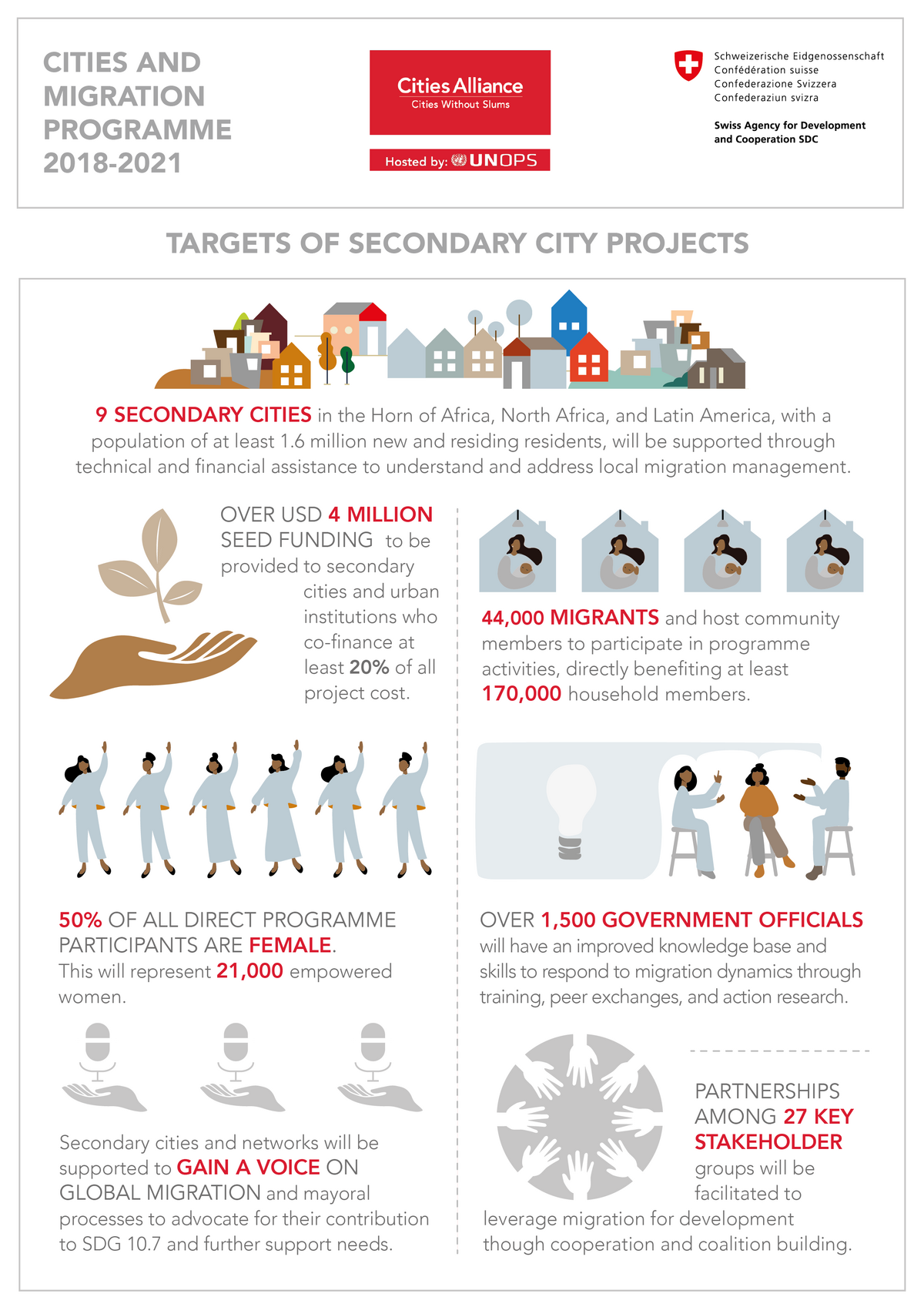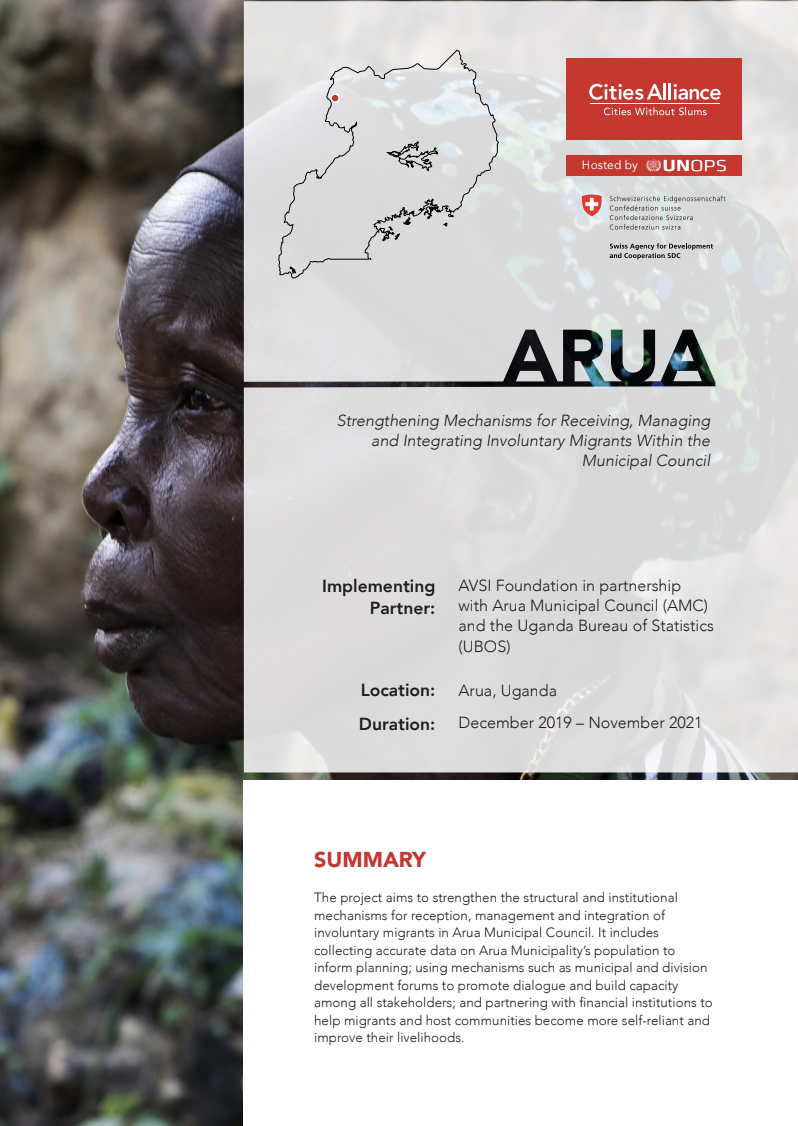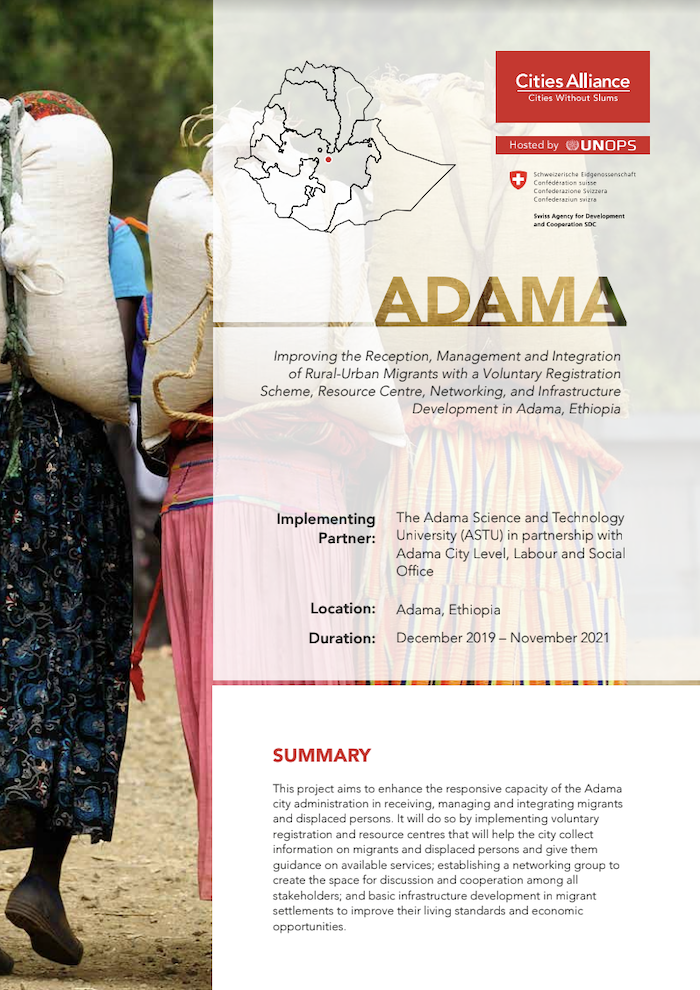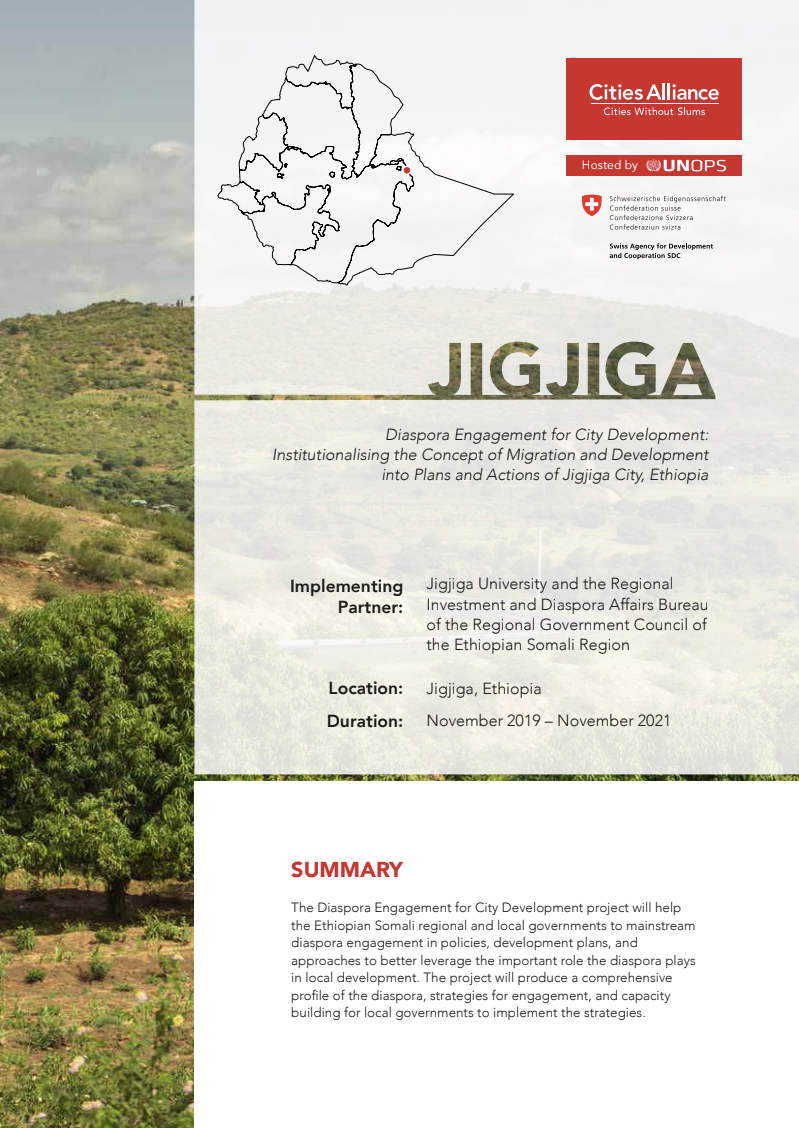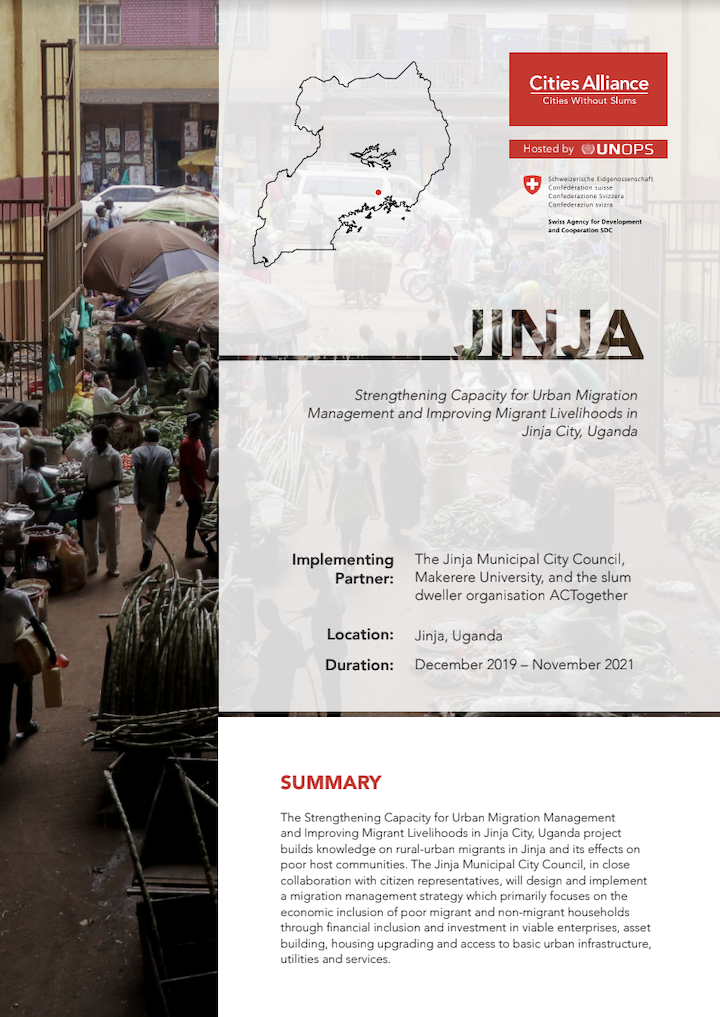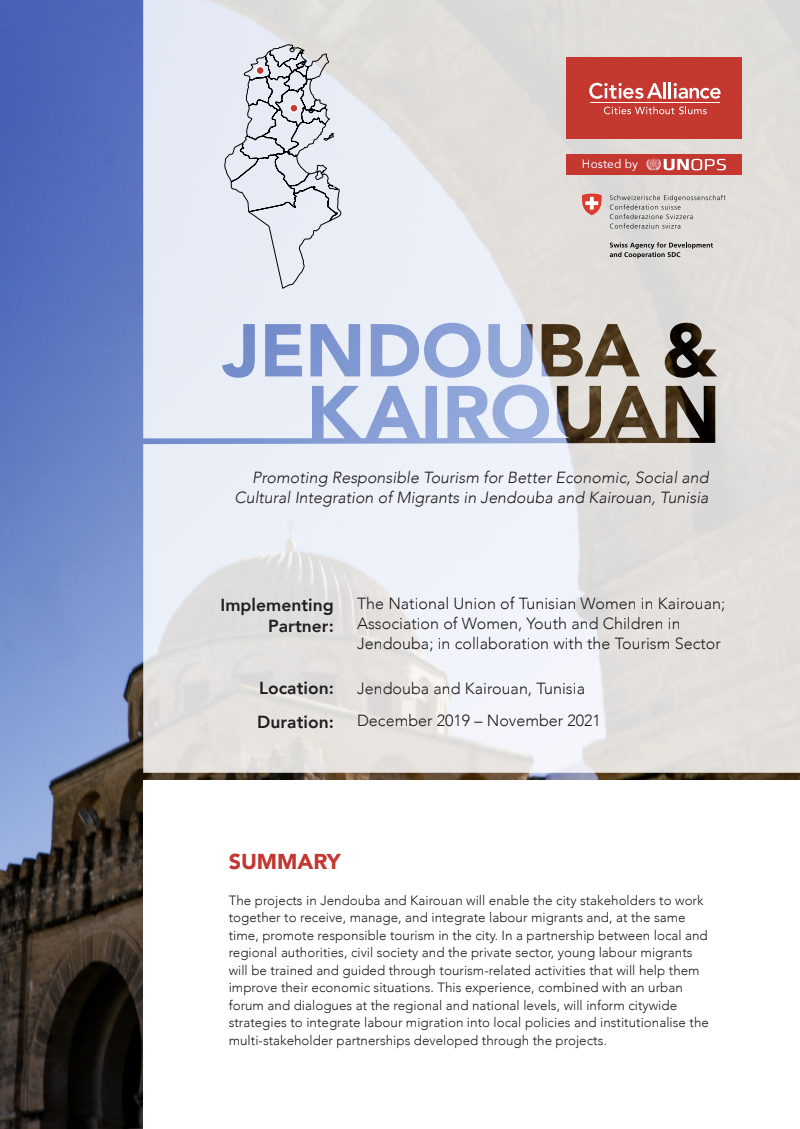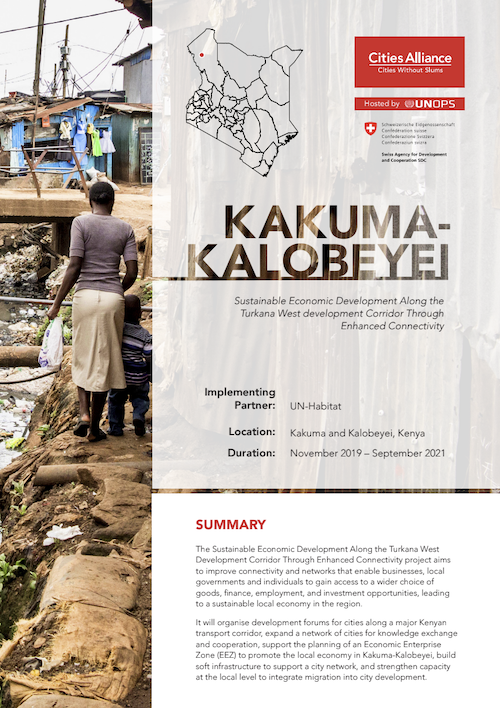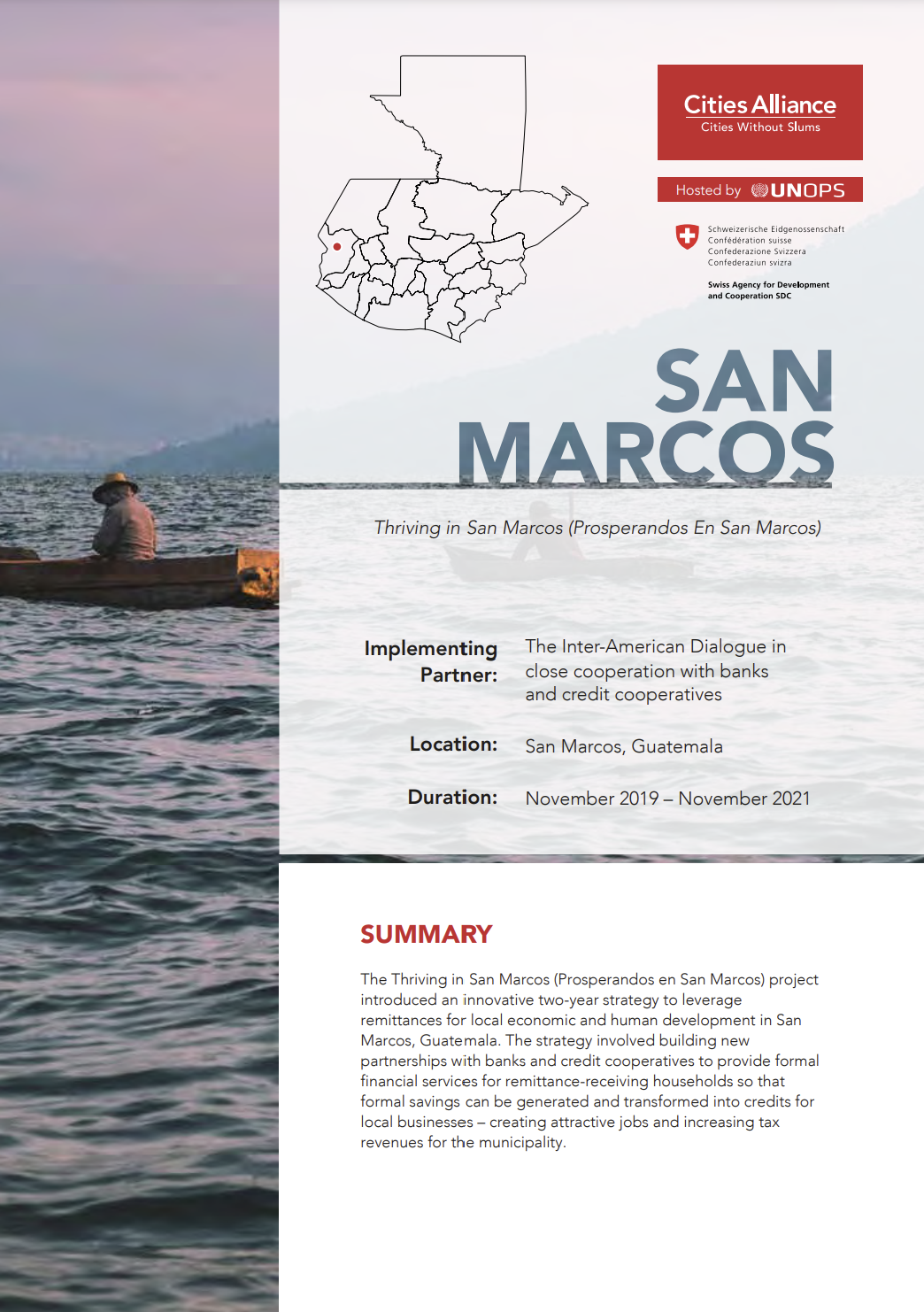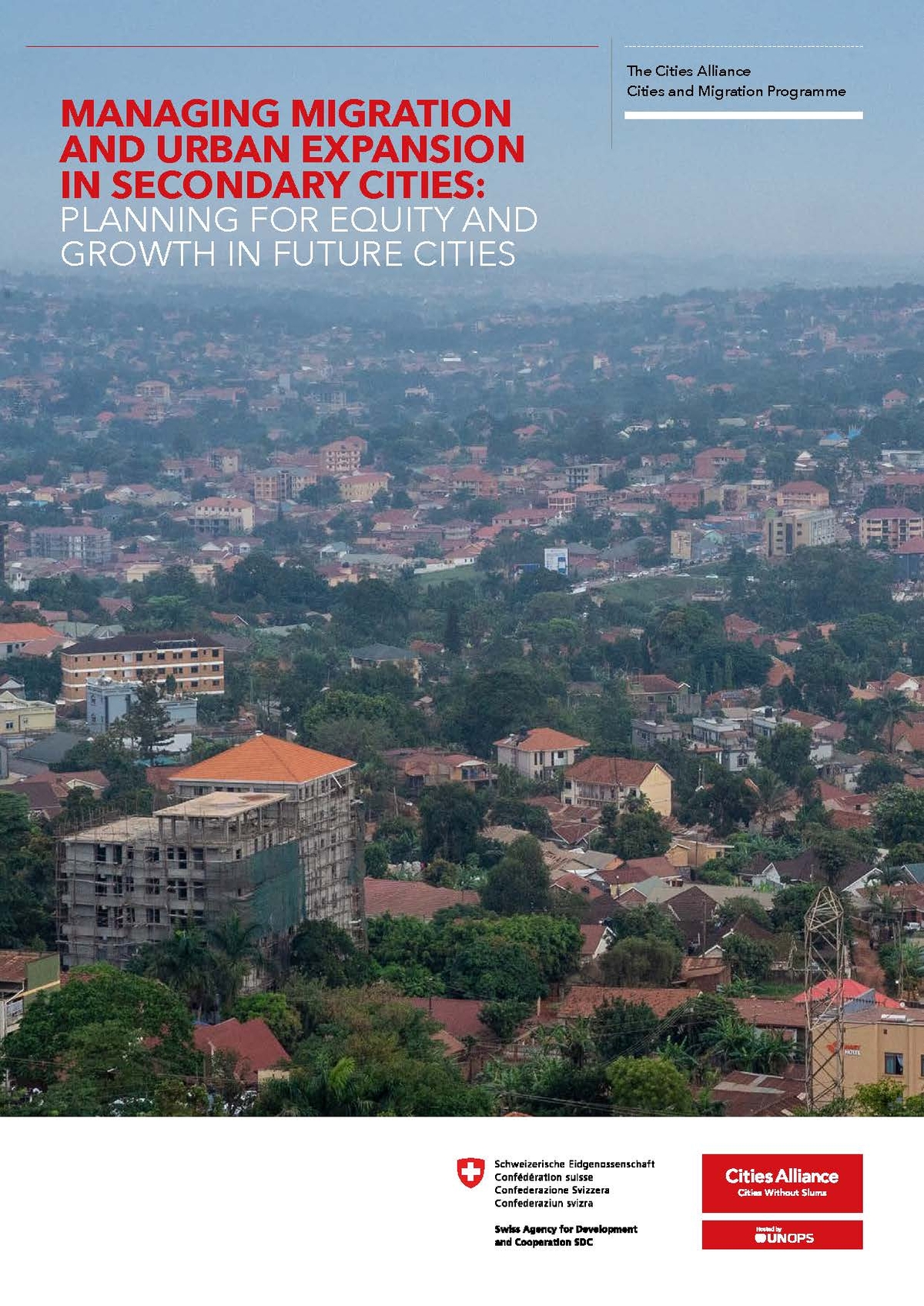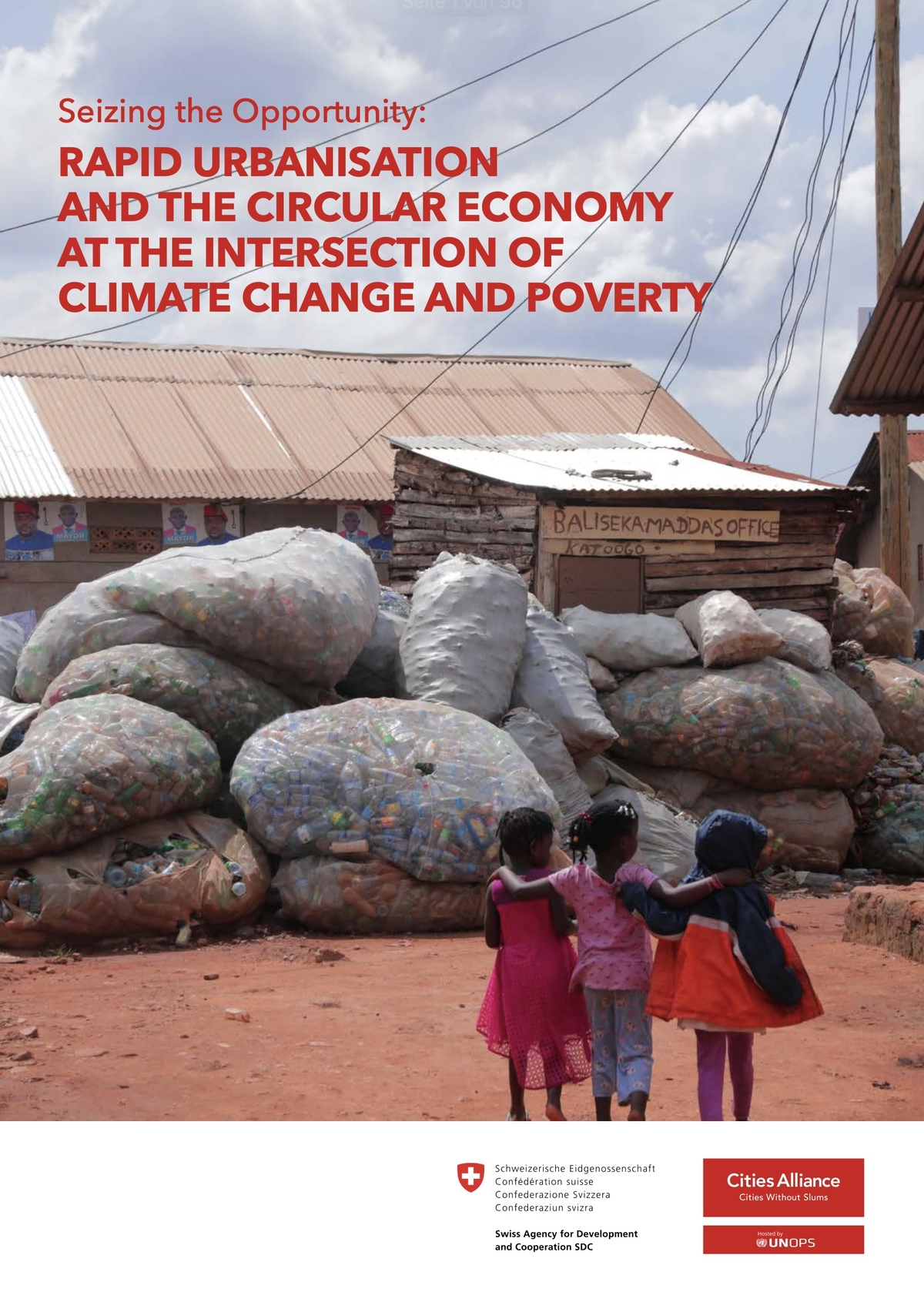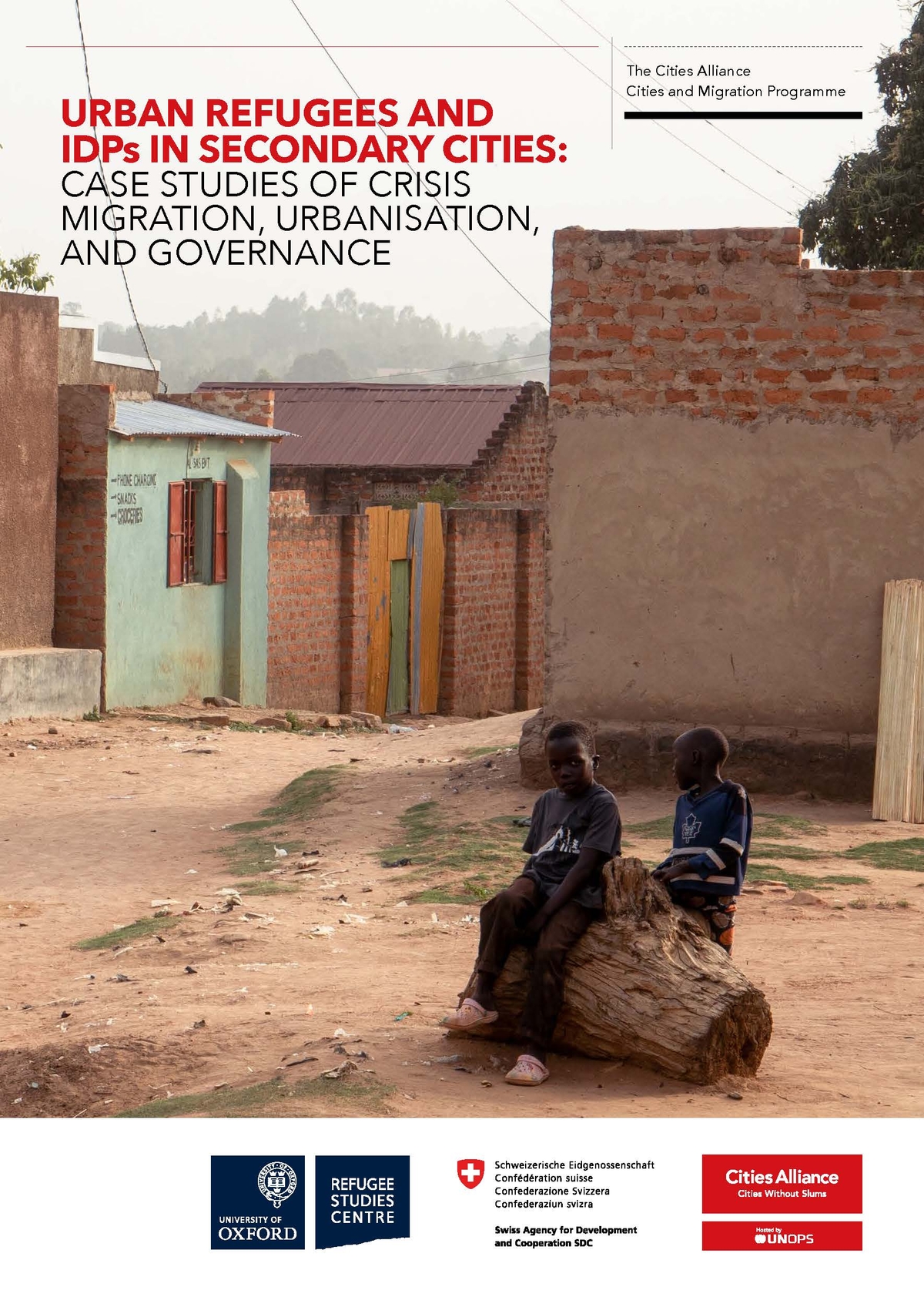Cities Alliance and the Swiss Agency for Development and Cooperation (SDC) are collaborating on a multi-phase initiative aimed at enabling partner cities, local governments, host communities, and migrants to manage challenges and leverage opportunities arising from migration to cities for sustainable and inclusive development.
The first phase of the programme ran from 2018 to 2021. It provided technical support to nine secondary cities in the Horn of Africa, North Africa, and Latin America. The goal was to help urban leaders understand and address local migration management, with women as the main beneficiaries.
It also produced new evidence on migration in secondary cities, organised regional peer learning events, and provided partner cities opportunities to amplify their concerns at global migration-related events.
The second phase, the Resilient Systems of Secondary Cities and Migration Dynamics Programme, is currently in progress.
Secondary City Initiatives
Results
The programme supported initiatives in Arua and Jinja (Uganda), Adama and Jigjiga (Ethiopia), Kairouan and Jendouba (Tunisia), Kakuma-Kalobeyei (Kenya), Gabiley and Borama (Somaliland, Somalia) and San Marcos and Amatitlán (Guatemala).
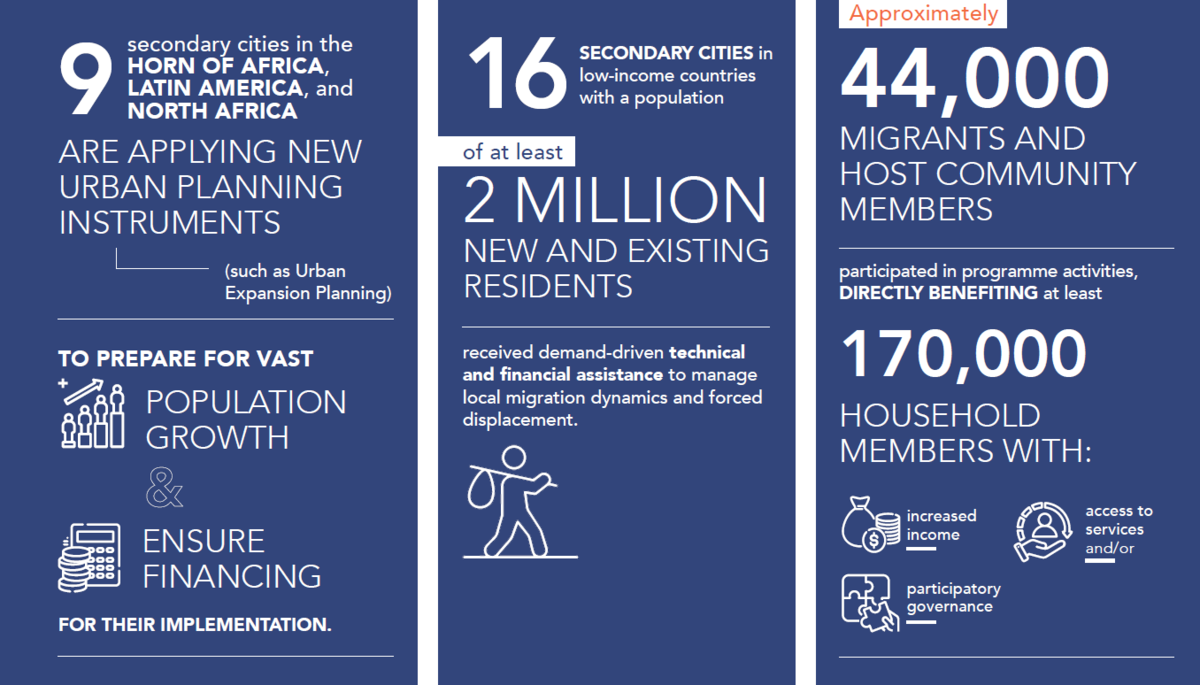
Projects
In Uganda, a campaign to draw attention to refugees in secondary cities is in preparation.
The city initiative in Arua and analytical work on refugees and secondary cities has drawn Cities Alliance’s attention to spatial disparities in recognizing refugees. Academic literature on urban displacement has disproportionately focused on capital cities, contributing to a perception that they are the main urban destination for displaced people.
In Uganda, refugee registration centres are only available in refugee settlements and Kampala, the capital. Secondary cities or towns in Uganda cannot register refugees, a process that would regularly document their numbers. This excludes municipalities from much-needed support to provide for all their residents and prevents refugees from accessing entitlements, including national Covid-19 relief.
Projects
In Adama, a market in an Internal Displaced Persons (IDP) neighbourhood is under full construction. Over 2,000 migrants have already sought services at the city’s new municipal registration centres, with almost 700 (97% female) matched with jobs in the city industrial park.
In Jigjiga, the first Somali Diaspora Forum discussed ownership and roles for the new Diaspora Engagement Strategy. Knowledge on migration and cities was further mainstreamed at Jigjiga University’s Somali Cities Study Conference in 2021, which featured 400 participants.
In Jinja, the slum dwellers organization ACTogether has mobilized small businesses into 162 saving groups with 8,828 members (42% women); 17 of the saving groups submitted proposals to the initiative’s new Jinja Community Development Fund for financing.
In Kairouan, a women-run artisanal market with ten large, attractive stalls is up and running. The project’s secondary activity on designing tourism circuits, with a direct cost of US $10,000, has already leveraged US $140,000 in public funding for implementation. The National Office for Tourism decided to fully develop the identified tourism circuits in the three communes of Ain Jeloula, Haffouz, and Oueslatia as part of a new government programme.
Kakuma-Kalobeyei has fostered improved connectivity and networks that enable businesses, local governments, and individuals to access a wider choice of goods, finance, employment, and investment opportunities, leading to a sustainable local economy in the region. Development forums are organized along a major Kenyan transport corridor, and local capacities to integrate migration into city development have been strengthened.
Amatitlán is preparing three participatory strategies on local economic development, access to housing, and prevention of violence. These strategies build on the project’s socio-urban and environmental diagnosis report, the Diplomaed in Territorial Management curriculum, and the technical assistance provided to the municipality. The Municipal Policy on Integration of Migrants is designed with ongoing advocacy for municipal budget support.
San Marcos’ investment of US $300,000 has so far funded 25,000 short financial advisory sessions that mobilized 6,000 remittance recipients, who formalized US $2,370,000 in savings. Cooperating banks have already transformed US $450,000 of those savings into loans for local entrepreneurship.
New Evidence on Cities and Migration
Through research partnerships with the World Bank, the Refugees Study Centre at Oxford University, urban planning scholars, and global city initiatives a wealth of evidence was produced on migration in secondary cities.
The research has provided international financing institutions with evidence-based information on how to leverage labour migration for equitable growth in secondary cities, and how local political leaders (and the international community) are acting on new data on refugees in secondary cities.
Advocacy and Migration at Urban Forums
Partner cities lobbied for greater mandates and financing for local migration management at key global events, including the Global Forum on Migration and Development and its Mayoral Mechanism. These forums relate to the Global Compact on Refugees and CRRF, Africities, the World Urban Forum, and the UN Secretary-General High-Level Panel on IDPs.
The programme also facilitated peer learning, advocacy, and cooperation. It organised one regional forum in Kampala and two national forums in Tunis and Hargeisa. Overall, the programme’s partner cities conveyed their messages to an audience of over 1,100 participants from influential public institutions and civil society during Phase I.
Phase I Targets
